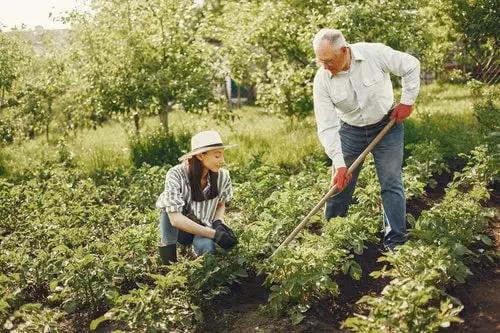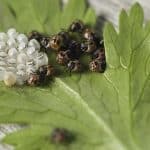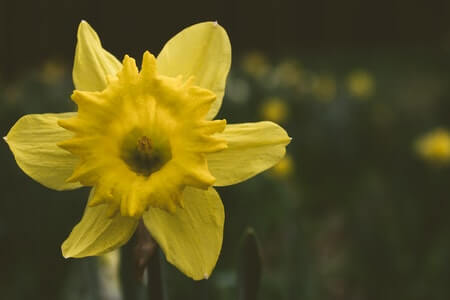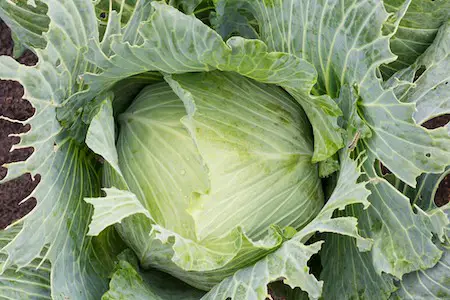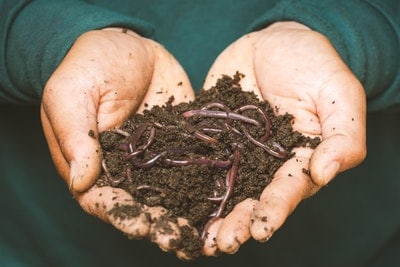Are there truly antidepressant in the soil? If the current researches about the impact of soil microbes on health are correct, then persons suffering from depression have an additional treatment option. Mycobacterium vaccae, a bacterium which stimulates the production of serotonin was discovered by scientists in the soil. This bacterium has the same effect as antidepressant meds excluding side effects and drug dependency. In addition, you get free access to it.
Can the Soil Affect One’s Mental Health?
According to researchers, the soil can affect one’s mental health. Given the alarming number of persons suffering from a mental health condition each year, more treatment options are essential to increasing the chances of getting better and invariablyimproving their overall health and well-being.
Mental health is just as important as physical health, if not more. It influences our feelings, thought patterns and actions. In recent years, mental health concerns have become more apparent. This explains the increase in awareness campaigns aimed at informing the masses how important mental health is.
Discovering the presence of microbes with antidepressant properties in the soil is really great. I mean, a medication for depression people can get any time without having to pay for it is great news.
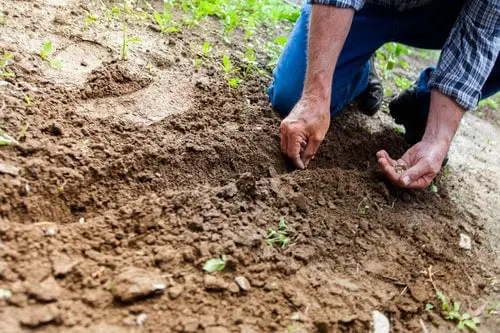
A Little Dirt is Beneficial
Gardeners will be quick to inform you about the healing ability of the soil and how the therapeutic fresh air and garden sand improves their mood[1]. Soldiers who returned from the traumatic experience of WW1 found hospital gardens relaxing. For some mental health problems, gardening is used as horticultural therapy. Studies suggest the art of gardening improves cognitive function, psychological well-being and overall life satisfaction. Can all these benefits be attributed to Mycobacterium Vaccae?
History of Researches
The experiment performed by an oncologist at London’s Royal Marsden Hospital in 2004 revealed an unexpected side effect. The oncologist injected M. vaccae in patients with lung cancer to check if it will improve their condition. The innocuous microbe presumed to improve the immune system did not affect the cancer.
However, patients injected with M. vaccae experienced certain changes. They felt happier, were able to think clearly and had more energy. Although M. vaccae did not improve cancer, it had a tremendous effect on mental health which is also greatly influenced by terminal illnesses such as cancer.
In Bristol University, a neuroscientist Christian Lowry checked the impact of M. vaccae on mice during stress tests. He observed that mice injected with M. vaccae had better results and lower anxiety. Lowry attributed this to activation of neurons in charge of serotonin production by the bacterium M. vaccae.
Further studies were also performed in the US. Mice were inoculated with M. vaccae and their ability to go through a maze was measured. The results revealed that mice injected finished up twice as fast with less anxiety when compared with their counterparts who weren’t injected. The scientists say M. vaccae triggers a set of neurons responsible for stimulating serotonin production. Anxiety, depression, bipolar disorder, obsessive-compulsive disorder and some other mental health issues have been related to low serotonin levels.
Therefore, if the increase in serotonin observed in mice can be produced in humans as seen from the experiment on lung cancer patients, then we can take advantage of the natural antidepressant resident in our soil.
Antidepressant in the soil: Mycobacterium vaccae
You are probably a bit conflicted right now; perhaps you have been made to believe that bacteria are harmful. What exactly is this Mycobacterium vaccae?
Some bacteria cause diseases while others do not. The Mycobacterium vaccae is an example of non-pathogenic organisms; this means they are not harmful. It belongs to the Mycobacteriaceae family located in normal soil. You don’t need to go on a treasure hunt to find it, it is right there in your back yard, garden, park and pretty much anywhere you can find soil.
The soil is home to a surprisingly large number of bacteria. One handful of soil can contain over 100 million bacteria. Bacteria benefit the soil and our plants in so many ways. You must have learnt that in biology.
Other Things You Find in Soil
The human race has spent thousands of years living on the soil, eating its food and consciously or unconsciously interacting with microorganisms within the soil. An increase in mental health issues has been observed alongside civilization and modern life.
Scientists have seen a relationship between poor health and limited time outdoors. Studies indicate that lack of outdoor time increases the risk of allergies, asthma and low immunity.
NHS reports a 700% increase since 1990 in the number of hospitalized children with anaphylaxis from food reactions or allergies. About 5 to 8 % of kids suffer from food allergy.
Perhaps we are too hygienic for our own good. This is referred to as the “Hygiene Hypothesis”. The constant use of kitchen wipes, hand gels and other antibacterial product, including antibacterial medications prevent us from producing natural defences against common threats.
Studies have shown early contact with different microorganisms’ strengthens the immune system. A study showed that Bavarian farm kids had a reasonably lower occurrence of asthma compared to their neighbours.
This proves that exposure to certain organisms in the soil is actually beneficial to the health, improves defences against diseases and also strengthens the immune system.
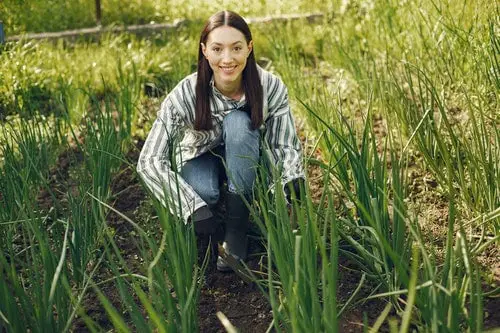
Nature Deficiency Disorder
Spending some time in the soil is wise. It is a natural source of early vaccination which introduces the immune system to a range of organisms. In the absence of that, the body is unable to build defences against common microbes, so it is unable to cope with threats.
The very limited exposure to our natural environment has been labelled “nature deficiency disorder”. To escape this “condition” will require us to ditch the comfort of our well-furnished homes and spend a little more time interacting with nature.
A little more time outdoors will boost the synthesis of vitamin D which is essential for strong bones. Also, it helps treat a kind of depression Seasonal Affective Disorder triggered by the absence of light. In addition, a little stroll or jog outdoors is a form of exercise, so you get to burn some calories. With the option of working home, it might seem cumbersome to just step out of your comfort zone. However, there is a lot to gain by stepping out of your house every now and then.
How Do I Take in M. Vaccae?
For starters, spend a little more time outdoors. You can indulge in simple activities like walking, jogging and cycling. Take things a step further by gardening. Gardeners are constantly exposed to the microbe by handling soil. They breathe it in and cuts on the hand also serve as a media for it to go in.
Those who grow their own vegetable, berries and fruit also take in this bacterium as the food grown in soil will contain some microbes. You also have the option of purchasing fresh produce from the farmer’s market, not those sold at the supermarket with very high hygienic standards.
Reducing your use of antibacterial products helps your body develop immunity from exposure to bacteria. This is important to toughen the immune system, especially in children.
Dirt isn’t Always Bad
The presence of a natural antidepressant in the soil might not be a surprise to gardeners as most of them have found their time spent with the soil exciting and therapeutic.
A number of studies have suggested that contact with the soil may be good for health. This goes a long way to explain why people enjoy gardening or love the smell of fresh soil, and why a lot of us experience depression during the winter.
I believe that further research will explain how M. vaccae impacts our health and treats depression. But, until then we can take advantage of the fact that a little time and contact with the soil improves your mood and mental health.
Glossary
[1] Link

